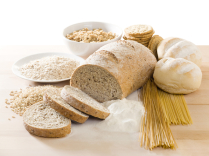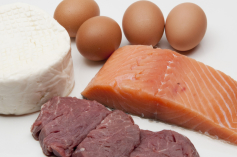Massage aftercare - Lifestyle advice on healthy diet
Fruit and vegetables
These should make up about a third of your daily diet and can be eaten as part of every meal, as well as being the first choice for a snack. You should eat at least five portions of fruit and vegetables each day. Research suggests this can help to protect against cancer, obesity and various chronic diseases such as heart disease. This is because of the unique package of nutrients and plant compounds they contain.
Bread, rice, potatoes and pasta
This food group should also make up about a third of your diet and contains the starchy carbohydrates that are the body’s main source of energy. When selecting products from this food group, it is better to source unrefined carbohydrates over those that have been refined, as they will contain the whole of the grain. Wholegrain foods are richer in fibre and other nutrients that have many health benefits.
People who consume whole grains seems to have a reduced risk of certain cancers, diabetes and coronary heart disease.
The final third is made up of three groups containing foods that need to be consumed in smaller proportions that the other two principal categories. These food groups also contain nutrients essential to our diet, so it’s important not to leave them out altogether.
1. Milk and dairy foods
These should be eaten in moderation because of their high saturated fat content, but they’re an important source of calcium, which is essential for healthy bones and teeth. Choose low-fat or reduced-fat versions.
2. Meat, fish, eggs and beans
This food group includes both animal and plant sources of protein, which is a major functional and structural component of all cells. protein provides the body with between 10 and 15 per cent of dietary energy, and is needed for growth and repair.
3. Food and drinks high in fat and/or sugar
This group makes up the smallest section, and includes foods that should only be eaten sparingly because, although, they’re an important energy source, they contain very few nutrients and are often known as “empty calories”.
Foods from this group are high in unhealthy components such as saturated fat, trans fatty acids, sugar and salt - all of which are associated with an increased risk of developing certain diseases. They should only be eaten as occasional treats, or to increase the palatability of other important foods (such as olive oil on salads, a scraping of spread on bread, or a sprinkling of sugar on some tart fruits).




